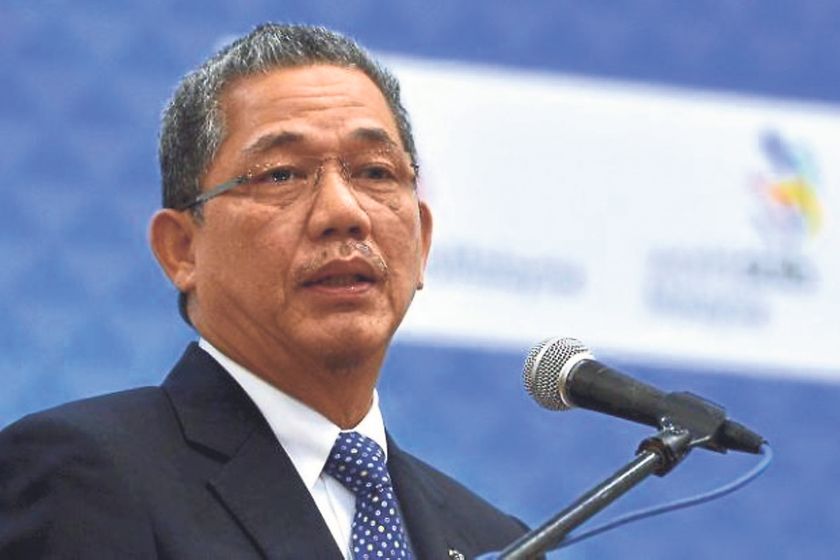KUALA LUMPUR, Sept 18 — The federal government’s plan to eventually restore Sabah and Sarawak’s status as equal partners in Malaysia’s formation should come with more development funds via higher oil royalty payments and a bigger portion in revenue sharing, MPs there have said.
Datuk Seri Fadillah Yusof, the Petra Jaya MP from Sarawak’s leading opposition party Parti Pesaka Bumiputera Bersatu (PBB), urged the federal government to quickly resolve the oil royalty issue that the Sarawak state government has pushed for.
“As the largest producer of oil and gas resources, Sarawak should be given far larger royalties.
“Besides that, special allocations for Sabah and Sarawak should be given immediately. We in Sarawak have long demanded for and now want it to be resolved and implemented immediately,” he told Malay Mail.
Both Sabah and Sarawak currently receive only five per cent in oil royalty. Pakatan Harapan (PH) had in its election manifesto promised to increase oil royalty payments to Sabah and Sarawak to 20 per cent as a first step towards equitable distribution of petroleum income.
In 1963 via the Malaysia Agreement signed then, Sabah and Sarawak were treated as equal partners along with Malaya and the now-expelled Singapore in the formation of Malaysia.
But Sabahans and Sarawakians have lamented the gradual erosion of rights and privileges accorded to the two territories in Borneo, as well as a constitutional amendment in the 1970s that downgraded their status from equal partners to mere states in Malaysia.
It is currently unclear when Sabah and Sarawak’s status as equal partners in the formation of Malaysia would be restored, as Prime Minister Tun Dr Mahathir Mohamad today said no timeframe could be set as PH did not have two-thirds parliamentary majority to push for any necessary constitutional amendments.
PBB’s Batang Sadong MP Datuk Seri Nancy Shukri said the federal government’s acknowledgment of Sabah and Sarawak as equal partners would be meaningless if it did not translate to a corresponding level of development.
She said both the PH parties in Sarawak and the Sarawak state government should work together to ensure continued control over the state’s revenue generation, especially from oil royalty.

“With the generation of high oil revenue, Sarawak will attain development faster,” she said.
STAR president Datuk Dr Jeffrey Kitingan, who is also Keningau MP said the restoration of just the original constitutional position of Sabah as an equal partner would be “useless”, if Sabah’s other rights under the Federal Constitution such as its revenue rights are ignored and not enforced.
Sabah Umno’s Beluran MP Datuk Seri Ronald Kiandee noted that the federal government did not even need to amend the Federal Constitution to return a higher portion of income to Sabah.
“There are issues in the MA63 that do not need constitutional amendments.
“For example on tax collected from Sabah, [Articles 112C and D] of the Federal Constitution says that 40 per cent needs to be returned to the state. Federal Government can start enforcing that. Why need a committee to look into a straight forward issue like that?” he told Malay Mail.
Noting that large shares of Sabah and Sarawak’s wealth were allegedly channelled to the federal coffers under the previous Barisan Nasional administration, PH had promised to end the inequality faced by two of the country’s poorest states when it comes into power.
PH said its pledge to boost petroleum royalty payments to east Malaysia would allow the latter to assume more responsibilities over spending for development.
PH also promised to allocate more funds for basic infrastructure in Sabah and Sarawak such as clean water and electricity supply, roads, repair of bridges and damaged roads, the building of more public schools and health centres, as well as targeted aid schemes there.
In an example of how much development in east Malaysia had fallen behind, Education Minister Maszlee Malik had earlier this month said he “cried” when he saw the dilapidated conditions of several schools in Sarawak.
In the same manifesto, PH had pledged to form a Cabinet committee or commission to propose measures to restore Sabah and Sarawak’s administrative rights, the right to the share of funds that rightfully belong to them, as well as rights to revenue from their natural resources such as oil and gas.


















